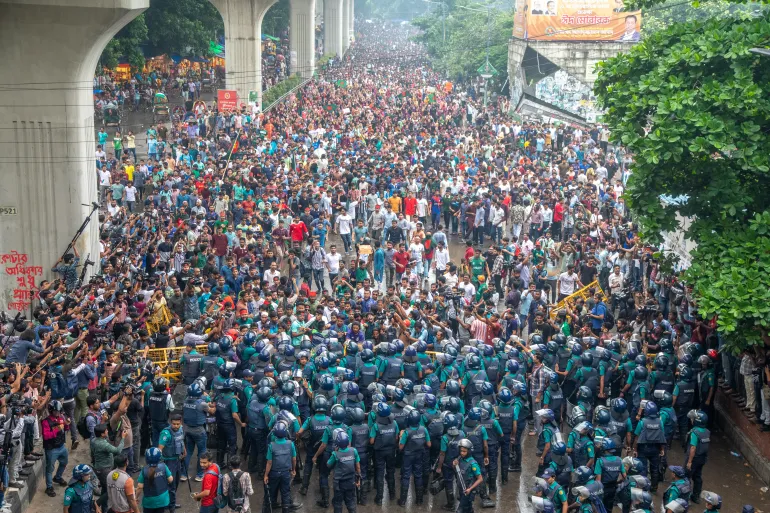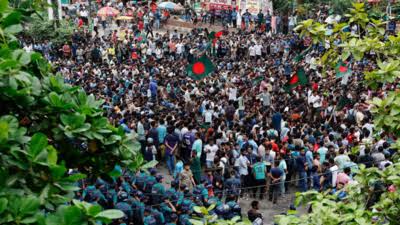Who are the protesters in Bangladesh who want to get rid of job quotas?
A controversial High Court decision set off massive student protests in Bangladesh that have been going on for almost three weeks. Since July 1, college students all over the country have been protesting in the streets to get rid of job targets in the government. The High Court brought back a rule that nearly a third of government jobs should go to the children and grandchildren of people who took part in the 1971 freedom movement. This caused the movement.
The ruling made by the High Court in June has had a big effect on how government jobs are distributed. Now, 56% of these jobs are set aside for certain groups, like women, children and grandkids of freedom fighters, and people from “backward districts.” Students are even more angry about this decision because they say the quota system is unfair and makes it harder for them to get jobs.
Protesters Advocating for the End of Job Quotas in Bangladesh

The protests were both big and violent, with students fighting with police and Bangladesh Chhatra League members. The Bangladesh Chhatra League is the student branch of Prime Minister Sheikh Hasina’s Awami League party, which is in power. Six people have been killed in these fights, and hundreds more have been hurt.
Who is in charge of the protests
The protests are notable for the wide range of people who took part. In contrast to many grassroots organizations, which are usually led by poor people, these protests are mostly led by college students, many of whom come from middle-class families. During an interview with Al Jazeera, Michael Kugelman, who runs the South Asia Institute at the Wilson Center, said, “It’s not just a case of grassroots protests led by the poor.” These are college students, and most of them are better off than middle class people… The fact that so many of your kids are so angry shows how badly people want to find work. They’re not really poor, but they still need to get steady, good jobs.

The fact that there aren’t enough jobs in Bangladesh is made clear by the rising unrest among students. Even though they have a lot of education, many college graduates have trouble finding stable work. The current quota system makes this problem worse because it cuts the number of jobs open to everyone by a large amount, making the battle for jobs even tougher.
In reaction to the protests, the government has both put down the protests and gotten involved with them. Police crackdowns on protesters have been harsh, hurting many people and making things worse. On the other hand, the government has said it is ready to talk with student officials about their problems. Prime Minister Sheikh Hasina has heard what the students are saying and said that the quota system could be looked at again.
Protesters are still not sure about these claims, though, because they think that the government’s words might not actually lead to big changes. It’s clear what they want: the quota system needs to be completely rethought so that people can compete fairly for government jobs based on ability instead of reserved categories.
Bangladesh is still in a dangerous state because of the ongoing protests. The students’ desire to get rid of the quota system shows how badly the country’s employment policies need to be changed right away. Whatever happens with these protests could have big effects on Bangladesh’s government and the future of its young workers.
The current protests happen at a very important time in Bangladesh’s history, as a new group of educated young people demand that the job market be more fair and open. Getting this problem solved is very important for the country’s social and economic prospects and for meeting the needs of its young people.